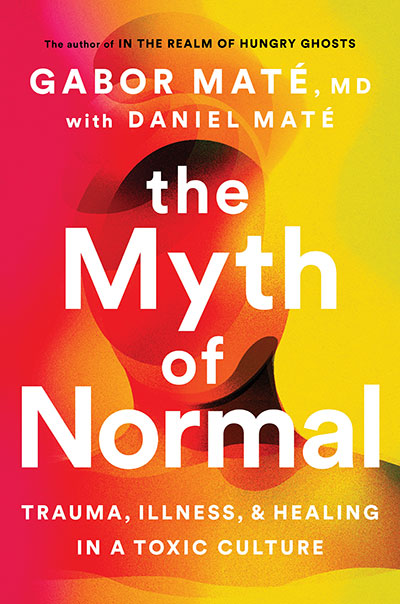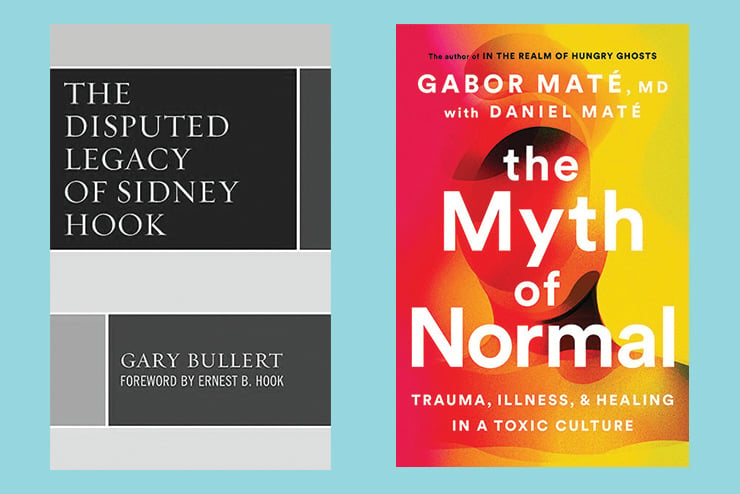
The Disputed Legacy of Sidney Hook, by Gary Bullert (Lexington Books; 246 pp., $45.00). Gary Bullert’s biography of the philosopher and political activist Sidney Hook (1902-1989) is a model of clear, dispassionate writing about a controversial historical figure. For many, Hook seems a contradiction, a relentless anti-Communist who was frequently identified with the right, but also a lifelong socialist. Hook was, moreover, a mentor to neoconservatives like Irving Kristol even while remaining an embattled atheist.
Although in his youth Hook was a Marxist Leninist who married a confirmed Communist, he later turned passionately against Stalin’s government. In the 1930s, he joined his favorite professor at Columbia University, John Dewey, as a member of the American Committee for the Defense of Leon Trotsky. Those who joined this group, like Dewey and the anthropologist Franz Boas, sympathized with the socialist left but opposed the Stalinist dictatorship in the Soviet Union. What they may have overlooked in their defense of Stalin’s defeated rival was that they were picking one would-be Communist dictator over a more successful one.
Hook’s endorsement of the Trotskyist side in the Soviet struggle was indicative of where he stood throughout life: on the left but “out of step” (which is the title of his autobiography). Hook worked to push the international left in an anti-Communist direction, as he did to some extent when he helped create the Congress for Cultural Freedom in 1950. This was a distinguished group of predominantly left-of-center authors, artists, and scholars who banded together to defend the ideal of an open society against leftist totalitarianism. For Hook, there was no incompatibility between socialism and intellectual freedom, and throughout his life he happily defended both. Dewey was his lifelong mentor, whose pragmatism Hook would use to justify both open inquiry and a progressive, collectivist economy.
Because of this orientation, Hook was qualified in his support of the neoconservatives in the 1980s. He supported their Cold War anti-Communism and, like them, he opposed violent student activism. But he held back when at least tactically they began to defend revealed religion. Hook suspected this was driven by the quest for political power, and he accused the Kristol and Podhoretz families of taking a wrong turn by endorsing religious positions.
As a Catholic and traditional conservative, we may assume that Bullert thinks differently from Hook on many issues. But, to his credit, Bullert describes Hook’s controversies without taking sides.
(Paul Gottfried)

The Myth of Normal: Trauma, Illness, & Healing in a Toxic Culture, by Gabor Maté (Avery; 576 pp., $30.00).
This best-selling book is thick but its message can be summarized in a few sentences: Virtually everyone in the modern world is a victim of trauma. The source of all trauma is childhood suffering, which is produced in our culture by a value system that emphasizes individualism, strength, self-reliance, perseverance, and achievement. Our culture seeks to normalize this trauma and, when it does deign to recognize it as suffering, to misattribute it to biological causes rather than the true cultural cause, which is the capitalist form of economy dominant in the modern world.
Maté’s solution to trauma and its toxic source is to eliminate capitalism and embrace “healing,” which amounts to a non-evaluative embrace of sufferers as helpless victims of things always utterly beyond their control. The pain may be assuaged by New Age spirituality (Maté describes an encounter with Peruvian shamans in laughably fawning terms) and the use of psychedelics, but only a utopian revolution can bring us out of the corrupted institutions and back to the pristine purity of our beneficent natural instincts.
In other words, Maté is like a Dr. Jean-Jacques Rousseau, M.D., dressed up in the pseudosciences of holistic medicine and universal therapy.
Maté, who lost family members to Nazi atrocities, constantly attempts to translate the intensity of his own familial drama into the biographies of every other person he discusses. He describes the preposterous belief of the misandrist writer of The Vagina Monologues, Eve Ensler,that childhood sexual abuse caused her to develop uterine cancer in her sixties, as a “stunning insight.” Anywhere he finds individuals who have encountered hardship but cannot recall childhood trauma, he asserts that they must be hiding it from themselves. To live (in capitalism) is to be in trauma.
The book’s criticism of the ways in which corporate culture poisons the thinking of Americans is not entirely off target, even if its therapy-for-all solution cannot be taken seriously. Rather than capitalism, could one blame a culture in which the family, religion, and universal moral laws have been under withering assault? There was a time when these other institutions provided protection against the callousness of the market. It was the progressivism of people like Maté that savaged those structures, leaving them in the enervated state in which they are found today.
(Alexander Riley)



Leave a Reply